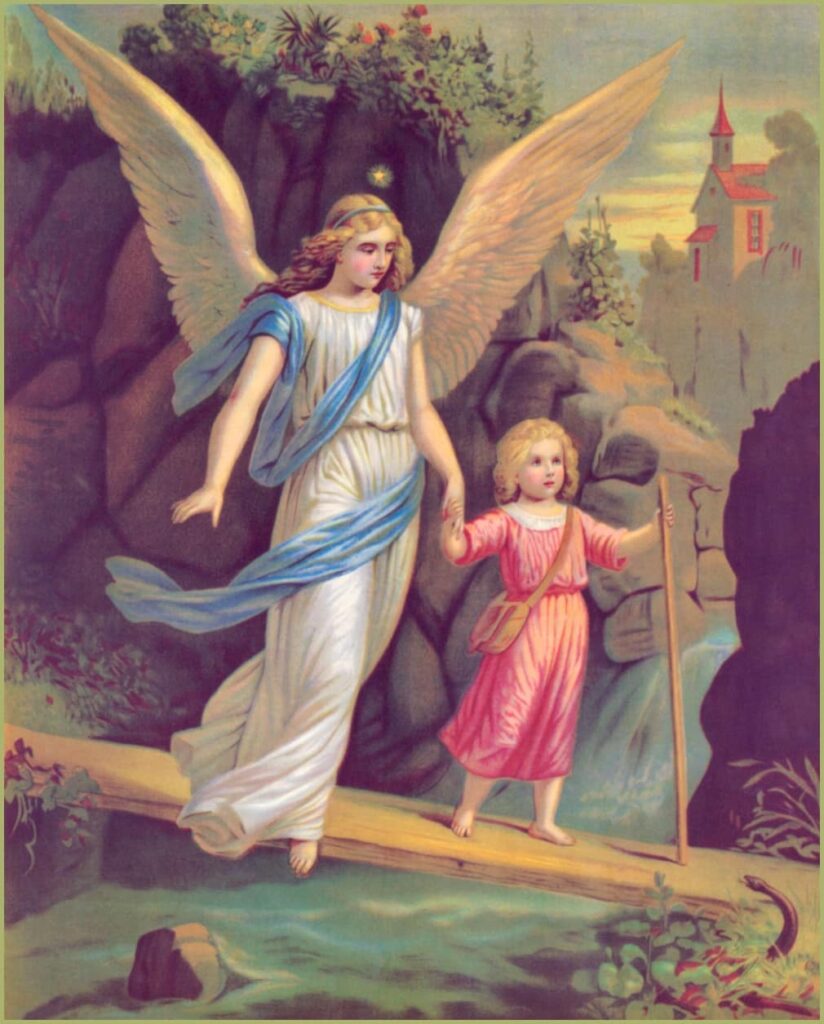Father Rizzo
My dear father died from cancer on July 25th, in the year 2000. He spent his last week at home where he was surrounded by his family, praying for him. But for some time before that, he was in hospital. I was living in Melbourne at the time, and I was able to get home a couple of weeks before he died. Owing to my priestly privilege, I was able to give him the consolations of the Church.
When he was lying in hospital quite ill, my nieces would visit him. At his bedside, they would sing hymns to Our Lady and hymns sung at Benediction such as ‘O Salutaris Hostia’ and ‘Tantum Ergo’. Whilst they were singing one afternoon, the nurse came in and said to them “Ladies, when you are done here, can you please see the patient just a few doors down? He heard you singing, and he would like to talk to you.” So when my nieces had finished visiting my father, they went to see this other gentleman, whose name was Bob. In the midst of their conversation, my nieces told him that they were singing for their grandfather. No names were mentioned. They also mentioned that they had an uncle who was a priest, and that he would be home soon to see his father. My nieces asked him “Would you like to see Fr John when he comes back?” Bob agreed to seeing me.
I arrived from Melbourne a few days later, and my nieces told me about Bob. I went to see my father first, and after a while I said to him “Dad, there is somebody a few doors down who wants to see a priest.” So off I went to see Bob. He said to me “So, you are the priest! I heard your nieces singing some beautiful hymns. I am not Catholic, but I remember going to a Catholic Mass with some of my friends when I was growing up. I remember some of those old hymns during the Mass.” I asked him “Would you consider becoming a Catholic?” He said to me “Well, my brother died a Catholic…” I said to him “Well, what about you? Why don’t you do the same?” He cautiously replied “Oh no, I am a Congregationalist, and my wife would be upset if she realised that I had become a Catholic.” I said “You can still become a Catholic – it will just be between you, me and God. Your wife does not have to know.” Bob seemed open to the suggestion, so I explained the Apostles’ Creed to him.
We then began to talk about other things, and in the course of the conversation, I mentioned my name. He said to me “I knew a Rizzo when I was growing up.” I asked “Would it be Tony Rizzo?” He said “Yes, that’s right.” I could hardly believe it! I said “That is my father – he is a few doors down, dying from cancer. Would you like to see him?” Bob did want to see him, and so the nurses came and rolled his bed into my father’s room. They were very happy to see each other again. They chatted a bit, and after the nurses returned Bob to his room, I asked him “So, how about it? Would you like to become a Catholic?” He pondered my question for a few minutes, and then said “Yes, Father.”
So to my great joy, I baptised him. Since he had never been baptised in the name of the Trinity, there was no need to hear his confession, as all his sins were forgiven when I baptised him. I then gave him a piece of the Holy Eucharist which I had with me to give my father. I also gave him the Sacrament of Confirmation, which raises the state of glory for a soul when it enters Heaven. And then I gave him the Anointing of the Sick. He received all these Sacraments in the space of twenty minutes. He was particularly pleased to receive the Holy Eucharist.
We can admire the heroism of Newman’s life, but canonisation, as we have seen, is more than an endorsement of heroism: it teaches that the saint is an example for the universal Church. What was it about Newman that made him such an example? As with other saints, it is the work to which he devoted his life that must give the example. Newman described this work in the speech he made in Rome after being named a cardinal: ‘I rejoice to say, to one great mischief I have from the first opposed myself. For thirty, forty, fifty years I have resisted to the best of my powers the spirit of liberalism in religion. … Liberalism in religion is the doctrine that there is no positive truth in religion, but that one creed is as good as another.
My father died about a week later. I kept on going to see Bob, bringing him Holy Communion every day until the day he died. He died about 5 days after my father. I marvelled at how God worked in this situation – my dear nieces being with my father at that time and in that place, offering those hymns for the honour and glory of God. Little did they realise that it would also lead to the salvation of a soul.

SAVED BY THE BLOWER!
Really, I cannot talk enough about the role of our Guardian Angels in our daily lives. Have you ever thought of the possibility, for example, of invoking the Guardian Angel of an individual before you speak to that person, to ensure that your conversation is one of charity?
Recently, when I was visiting Hawkesbury Hospital to see a patient, I was walking towards the footpath and saw an elderly lady sitting in a wheelchair, smoking. I thought to myself “I will say a few words to her”, and I invoked the help of her Guardian Angel as I approached her. I said jokingly “Well, here you are, smoking away in front of the hospital – how does that look?!” She smiled, and we got talking. I told her that I would pray for her good health. She called me ‘Father’ and told me that she was a Catholic, but that she hadn’t been to Church for many years. I said to her “Well, I’m here. Would you like the chance of making a good confession?” I was also thinking to myself “Here we are on a public footpath – what can I do to make sure no one will overhear our conversation?” As soon as that thought came to mind, a nearby gardener turned on the blower and started blowing away all the loose grass from the footpath. Perfect timing!
A nice chat with that lady ended up with a wonderful confession, and a smile on both our faces as we parted. Thank you, Guardian Angels!

